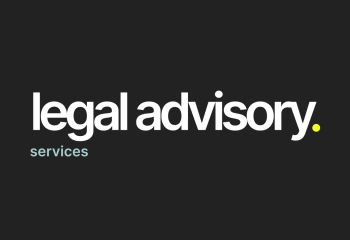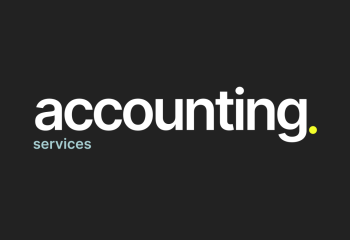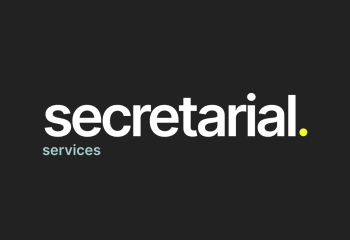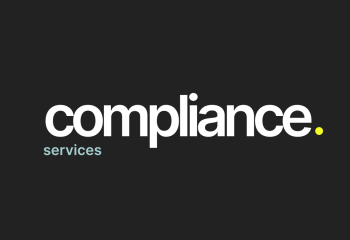.png)
I - Introduction
National Assembly Passes the Law Amending and Supplementing a Number of Articles of the Law on Advertising – A Step Toward Tighter Regulation in the Digital Age. On the morning of June 16, 2025, with the majority of votes in favor, the National Assembly officially passed the Law Amending and Supplementing a Number of Articles of the Law on Advertising. This is the first comprehensive amendment since the Law on Advertising was issued in 2012, aimed at updating and improving the legal framework in response to the rapidly expanding advertising landscape, particularly on digital platforms and social networks.
II - Key changes introduced by the draft
-
Addition of Article 15a – Rights and Obligations of Advertising Disseminators
The Draft introduces an entirely new provision, Article 15a, which clearly defines the rights and obligations of the entity referred to as the “advertising disseminator,” in response to the growing need for managing increasingly diverse promotional activities in the digital environment.
Accordingly, advertising disseminators are recognized as having certain rights, such as: carrying out advertising under a signed service contract; verifying documents related to the advertising eligibility of products/services; and requesting appraisal of advertising content. At the same time, they are obliged to provide relevant documents upon request from competent authorities or advertising recipients.
Notably, a key obligation introduced by this provision is that advertising disseminators must bear direct responsibility for the content of advertisements relating to the features, quality, and uses of the advertised products. This is a significant tightening of accountability, particularly for individuals such as KOLs and KOCs—who often publish advertising content directly but were not previously subject to clear obligations regarding content verification.
The introduction of Article 15a can be considered a positive legislative move, aiming to address the issue of exaggerated or misleading advertising, which has caused consumer confusion and diminished public trust in advertising activities.
-
Addition of Article 19a – Mandatory Requirements for Advertising Special Products and Services
The Draft also supplements Article 19a, which sets out detailed mandatory disclosures for the advertisement of certain special product and service categories. This is a notable step toward greater transparency and aligns with regulatory practices under international agreements to which Vietnam is a party.
Specifically:
-
For cosmetics: advertisements must clearly state the product name, its features and functions, the entity responsible for bringing the product to market, and any warnings as required by international treaties. Misleading consumers into believing that cosmetics are medicines is strictly prohibited. In audio and visual media, these elements must be clearly spoken.
-
For food and health supplements: advertisements must include the product name, responsible entity, and a disclaimer that “This product is not a medicine and is not intended to replace medical treatment.” The disclaimer must be shown in both written and spoken form, except for advertisements under 15 seconds in length, where only visual display is required.
-
For insecticidal and antimicrobial chemicals and preparations: the advertisements must specify their uses, safety warnings (e.g., “Read the instructions carefully before use”), and the responsible entity’s information, including in audio and visual formats.
-
For medical examination and treatment services: advertisements must clearly state the name and address of the licensed facility, along with the scope of professional activities approved by the competent authority.
-
For plant protection drugs, veterinary medicines, fertilizers, animal feed, plant varieties, and animal breeds: advertisements must clearly indicate features, origin, usage instructions or precautions, and the name and address of the responsible organization or individual.
This detailed list of mandatory advertising elements not only provides a clear legal framework for businesses, but also serves to protect consumers from inaccurate or unsubstantiated claims—particularly in the context of online advertising.
III - Amendment of Article 23 – Management of Online Advertising
The Draft comprehensively revises Article 23 to better reflect and regulate advertising activities on digital platforms such as social networks, electronic news sites, mobile applications, and other internet-connected platforms.
Key new requirements include:
-
Clear identification of advertising content: Advertisements must feature distinct markers—such as text, symbols, images, or sounds—to clearly distinguish them from non-advertising content.
-
Control over non-fixed ads: For non-fixed ads (e.g., pop-ups, animated banners), platforms must integrate features that allow users to close the ads, report violations, or opt out of viewing inappropriate content.
-
Responsibility for linked content: For ads containing hyperlinks, the linked content must comply with legal regulations. Advertising service providers and publishers are required to implement mechanisms for monitoring and controlling the content of these links.
This adjustment reflects the rapid evolution of digital advertising and introduces proactive responsibilities for advertising service providers, helping to prevent evasion of content control on their platforms.
-
New Regulations on Advertising via Dedicated Digital Screens
The Draft also introduces detailed regulations governing advertisements displayed on dedicated advertising screens, including the following
Sound restriction: Outdoor dedicated advertising screens must not use sound, in order to protect public order, avoid disrupting residents' daily lives, and prevent noise pollution.
Brightness control: Screen brightness must comply with national technical regulations on lighting structures, ensuring road safety and avoiding glare that could affect drivers and nearby residents.
Cybersecurity obligations: The owner or lawful user of the advertising screen must implement technical measures to prevent and block cyberattacks. This is a notable new requirement, especially as internet-connected electronic devices (e.g., public LED screens) are vulnerable to unauthorized access and content hijacking.
Pre-advertising notification procedure: Organizations and individuals intending to advertise via dedicated screens are required to submit a notification dossier to the provincial-level advertising authority before proceeding. Submission may be done directly, online, or by post.
III - Key Advantages and Challenges for Businesses
The Draft introduces several reform-oriented changes that help Clearer legal basis allows businesses to better understand their responsibilities in the advertising value chain, especially with the inclusion of new actors like KOLs/KOCs. Greater transparency in advertising special products enhances brand credibility and consumer protection.
However, it is also important to recognize that these changes may create challenges for businesses. Increased legal liability for advertising disseminators, including the obligation to verify the accuracy of information, may expose parties to legal risks. Highly detailed advertising content requirements for each product type could increase content production costs. Cybersecurity responsibilities for digital advertising equipment are new and may require technical investment and expertise.
Businesses are advised to proactively review their current advertising practices to ensure compliance with the new regulations and prepare necessary compliance measures to minimize legal risks and leverage opportunities for more transparent and effective communication in the near future.
HOW ALTAS CAN ASSIST YOU:
ALTAS LAW is uniquely positioned to assist your business in navigating these complex administrative reforms. We offer a comprehensive suite of legal and business services designed to provide seamless support during this transition period:
• Accounting and Tax Services: We also offer accounting and tax services to help your business manage the financial implications of these reforms, including tax planning, reporting, and compliance.
• Licensing & Regulatory Compliance: We will meticulously review your existing licenses and permits, advise on necessary amendments or renewals, and guide you through the process of obtaining any new approvals. Our team will also ensure your compliance with all relevant regulatory changes.
Please feel free to reach us via email contact@altas.vn to discuss your specific concerns and explore how we can navigate these reforms successfully.
----
Written by: Mr. Luong Van Chuong (Chris) – Partner Lawyer at ALTAS Law & Senior Legal Assistant Nguyen Tran Ngoc Thach - ALTAS Law
Date: 26/06/2025


















![[LEGAL UPDATE] The Presidential Order announces the promulgation of Law No. 56/2024/QH15. [LEGAL UPDATE] The Presidential Order announces the promulgation of Law No. 56/2024/QH15.](thumbs/210x144x1/upload/news/van-phong-chu-tich-nuoc-2-3616.jpg)
![[TAX UPDATE] Regulations on Tax Registration Replacing Circular 105/2020/TT-BTC [TAX UPDATE] Regulations on Tax Registration Replacing Circular 105/2020/TT-BTC](thumbs/210x144x1/upload/news/kelly-sikkema-tqq4bwnufs-unsplash-3606.jpg)
![[LEGAL UPDATE] Responsibility for Submitting Reports on the Employment of Foreign Workers and Participation in Unemployment Insurance in January 2025 [LEGAL UPDATE] Responsibility for Submitting Reports on the Employment of Foreign Workers and Participation in Unemployment Insurance in January 2025](thumbs/210x144x1/upload/news/zach-wear-k1rtd9cytvw-unsplash-1-9289.png)

![[LEGAL UPDATE DECEMBER 2024] DECREE NO. 111/2024/ND-CP [LEGAL UPDATE DECEMBER 2024] DECREE NO. 111/2024/ND-CP](thumbs/210x144x1/upload/news/istock-1221293664-1-1-1-7650.jpg)






